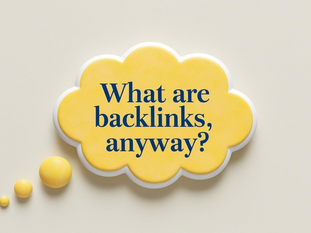top of page

Wix SEO Keywords: How to Pick the Best Keywords and Phrases for Your UK Website
0
28
0

If you want your UK website to get noticed online, Search Engine Optimisation (SEO) is key.
By using Wix, a popular website builder, you can improve your chances of being found on search engines like Google by using the correct WiX SEO Keywords.
But, how to improve SEO on WiX, Pick the Best Keywords and how to get found on Google? One of the most important parts of SEO is to pick the best WiX SEO keywords—words or phrases people type into search engines when looking for something.
In this guide, we’ll explain how to choose the best keywords and phrases for your UK-based audience to help your site rank higher on Google.
1. Know Your UK Audience

Before you start looking for keywords, think about who your target audience is in the UK. This will help you to think about how to pick the best keywords.
Different regions might use different words for the same thing. For example, someone in the UK might search for “car hire” rather than “car rental,” or “trainers” instead of “sneakers.”
Understanding these language differences can help you pick keywords that feel natural to your British audience and improve your chances of showing up in UK search results.
2. Use Keyword Research Tools for the best Keywords and Phrases
There are tools that can help you find out what people in the UK are searching for.
Some of the best ones include Google Keyword Planner, SEMrush, and Ubersuggest.
These tools let you filter results by location, so you can find keywords specific to the UK.
You’ll want to focus on location-based keywords, like “London bakery” or “plumbers in Leeds.”
If you’re targeting local customers, these location-specific SEO Keywords can help your website show up in local search results.
3. Pick the Best Long-Tail Keywords and Phrases
Long-tail keywords are longer, more specific phrases people use when they know what they’re looking for.
Instead of just using “coffee shop,” you could target a phrase like “best coffee shop in Manchester.”
These longer phrases are usually easier to rank for since there’s less competition, and they often attract people who are ready to take action—whether it’s visiting a shop or buying a product.
4. Think About Search Intent when picking WiX SEO Keywords
Search intent means understanding why people are searching for something.
Are they looking for information, comparing products, or ready to make a purchase?
For example, someone searching for “affordable laptops in the UK” is likely ready to buy, while someone looking for “how to choose a mortgage in the UK” is in the research stage.
Choose keywords that match the intent of your audience. This way, you’ll attract the right visitors to your site, whether they’re looking for info or ready to make a purchase.
5. Check Out the Competition
Once you’ve got some keyword ideas, check out who else is ranking for those words. Search for your chosen keywords on Google and look at the websites that appear on the first page.
What kind of content are they creating? How are they using their keywords?
If the top-ranking sites are big competitors, you might want to choose keywords with less competition.
Targeting more specific, niche keywords could give you a better chance of ranking well.
6. Optimise Your Wix Website for WiX SEO Keywords
Now that you’ve chosen your keywords, it’s time to add them to your Wix site.
Here’s where to place them:
Headings: Use your keywords in headings (H1, H2, etc.) to show search engines what the page is about.

Page titles: The title of your page is one of the first things search engines and users see.

Meta descriptions: These are the short descriptions that show up in search results under your page title.

Content: Add keywords naturally throughout your page content—don’t overdo it or "stuff" them.
URLs: Use clean, simple URLs that include your keywords.

Image alt text: Add keywords to the descriptions of your images to help them rank in image searches.
Wix has an SEO tool called SEO Wiz, which can help you optimise your site by giving you personalised tips on how to improve your search engine ranking.

7. Track Your Progress
SEO is an ongoing process. Once your Wix site is optimised, it’s important to track how your keywords are performing.
Tools like Google Analytics and Google Search Console can help you see which keywords are driving traffic to your site.
Keep checking your performance and be ready to make changes if needed.
If a keyword isn’t working, you might need to adjust your content or try a different keyword. It's always important to to be constantly thinking about how to pick the best keywords for SEO purposes.
Final Thoughts for WiX SEO Keywords and picking the best keywords and phrases
Selecting the right keywords for your Wix website is crucial for attracting the right people and getting your site noticed.
For UK-based websites, it’s important to focus on local, long-tail keywords that match what your audience is looking for.
Remember, SEO takes time and effort, so it’s important to keep refining your keyword strategy and adapting as needed.
By following these simple steps, you can boost your website’s ranking and bring in more traffic from your UK audience. A professional WiX Website designer can provide much needed cost - effective advice for the right SEO strategy to boost traffic to your website within the UK.
Happy Optimising!
Related Posts
Comments
Share Your ThoughtsBe the first to write a comment.
bottom of page





